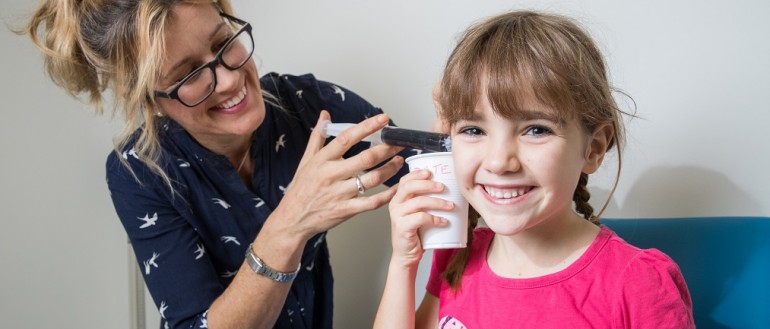Improving hearing outcomes through I HEAR BETA study
Indigenous children living in remote areas of the NT are prone to a severe middle ear disease known as chronic
suppurative otitis media (CSOM), or runny ears.
Although disease rates have decreased over the years, it is estimated that 15 per cent of children still live with CSOM. It can result in hearing loss, which negatively impacts the child’s future.
The I HEAR BETA study, carried out in 24 communities, aimed to discover if antibiotics and Betadine ear washes could fix chronic runny ears.
“Many families were happy to come on board with the study,” said project coordinator, Christine Wigger.
“We had one mum with six kids, at least two of whom had ears leaking pus; she felt optimistic about being part of the study because standard treatments were just not working.”
Ms Wigger said participating families felt supported through visits by trained community workers and regular phone calls from the study nurses.
More than 200 children have already been enrolled in the study to trial different treatment combinations and help determine which works best.
The results of the trial will become the best available evidence to guide future medical management of CSOM in high-risk children.

